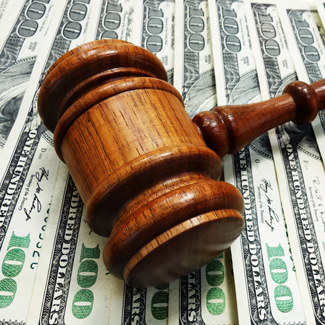Should BigLaw firms be donating more of their record profits to legal aid?

Image from Shutterstock.
BigLaw firms are earning record profits, amounting to more than $100 billion last year.
Yet they are donating only a tiny fraction of their earnings to help provide legal services to those who can’t afford representation, according to an analysis by the American Lawyer (sub. req.)
In its first effort to determine how much major U.S. law firms are contributing to legal aid efforts, the American Lawyer found that many wouldn’t discuss the subject. However, of the firms that did disclose their contributions to the magazine, even the most generous were only giving around one-tenth of one percent of earnings. It isn’t clear whether this figure includes donated pro bono time, and it does not include individual donations by lawyers who work at the firms. American Lawyer reports that most BigLaw firms concentrate their charitable giving towards law schools and clients’ pet causes.
Paul Weiss Rifkind Wharton & Garrison contributed $1.5 million, amounting to .014 percent of revenue, the highest percentage among the firms that disclosed their donations.
“Our giving to legal aid has increased dramatically in recent years,” chairman Brad Karp told the legal publication. “While we and our peer firms can always do more, I’m proud of the work that we and others in our community do to try to make legal services available to those members of our community who desperately need them.”
Overall, U.S. law firms of all sizes donate around $95 million annually to legal aid efforts, according to an American Bar Association survey. That covers about 7 percent of annual costs for legal aid groups. The largest single source of legal aid funds comes from the Legal Services Corporation, which provided 23 percent of the $1.385 billion cost in 2013.
Although providing pro bono representation is important, says Judge David Tatel of the U.S. Court of Appeals for the D.C. Circuit, it can’t entirely solve the problem. “What we need most of all is dramatically increased lawyer and law firm funding for state and local legal aid programs,” he told diners at a fundraising dinner in 2013. Tatel said that the number of impoverished clients who could be served would double if the 12 biggest firms in Washington, D.C., upped their legal aid donation levels to 0.25 percent of their revenues.
The DealBook page of the New York Times (reg. req.) also has a story.



